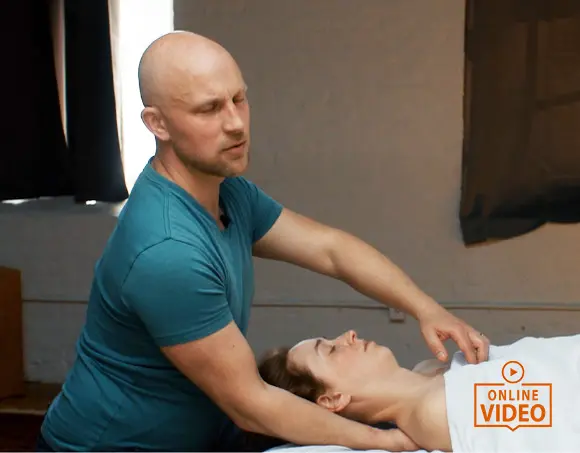
Approved for LIVE hours for Florida's 2025 renewal
We all know breathing well is crucial for good health. But merely telling our clients to "take a deep breath" is not enough. Instead, this course will introduce you to how to utilize your client’s breath to their advantage, to help improve their own health and happiness. (Along the way, you’ll learn about how you are breathing as well, since utilizing your own breath more efficiently will make you a happier therapist, too!)
We will see how the breath—and more specifically, our very common "dysfunctional" breathing patterns—are implicated in many of the problems that bring clients into our offices. Nearly all of your clients complain about tension in their back, neck, and shoulders. And many of your clients are aware of the value of breathing well. But what if these two aspects of good health are more linked than we realize? What many therapists and most client's don't realize is that improving their breath will also lessen their pain.
This course will explore the breathing patterns endemic to our hurried contemporary lives, and the "dysfunctional" or "paradoxical" or just plain effort-full breaths that result. We'll assess our clients in order to see, and palpate, this epidemic of overuse of the secondary muscles of respiration. Through video, your course instructor will demonstrate an easy and effective solution: not trying to get the client to breathe better, but instead encouraging the client to breathe easier. You will cultivate the ability to lengthen the exhale, and in turn allow the inhale to happen by itself, thus allowing these overused muscles of the upper back and neck to return to neutral, and encourage the diaphragm to reclaim its job as the primary mover of respiration.
You’ll learn manual techniques, both in prone and supine, to create more pliability in the rib cage and in those secondary muscles of respiration, as well as simple verbal suggestions to offer the client during your sessions. This combination will allow your clients to move more easily and breathe more easily, so that over time they can become aware of their own breath and learn to breathe without unnecessary effort.
Carla Russell, LMT, BCTMB
2/6/2025
Debra Reuss, LMT
1/13/2025
Vicki Progar, LMT, BCTMB
12/26/2024
Deborah Ritchie, LMT
11/19/2024
Diane Hennum, LMT
11/16/2024

David M. Lobenstine has been a massage therapist, teacher, and writer for over a decade. He is a graduate of the Swedish Institute and Vassar College. He has worked in a variety of settings, from luxury spas to the US Open Tennis Tournament to a hospice to now, exclusively, his own private practice, Full Breath Massage. And he has developed and taught continuing education courses around the country, from the Swedish Institute to the AMTA National Convention. His aim, both with his clients and in his teaching, is to enhance self-awareness, so that we can do the things we love with efficiency and ease.
Mr. Lobenstine is the creator and instructor of Pour Don't Push, Working the Rib Cage, Using Your Thumbs Wisely, Approaching the Upper Body from All Angles, Approaching the Lower Body from All Angles, and Using the Breath to Massage Better.


Take our free online course: Ethics Refresher
We will not rent/sell your email to anyone.
You'll also receive our newsletter and special offers.
Thank you! An email will be sent to the address provided with instructions on how to enroll in this 1 CE hour course - FREE!
If you do not see our email within a few minutes of signing up, please check your Spam/Junk folders it may have been delivered there instead of your inbox.
If, by chance, you still have not received it within 5 minutes, please call us at 1-800-364-5722, Monday-Friday, between 9am-12:30pm and 1:30pm-5pm EST for assistance.